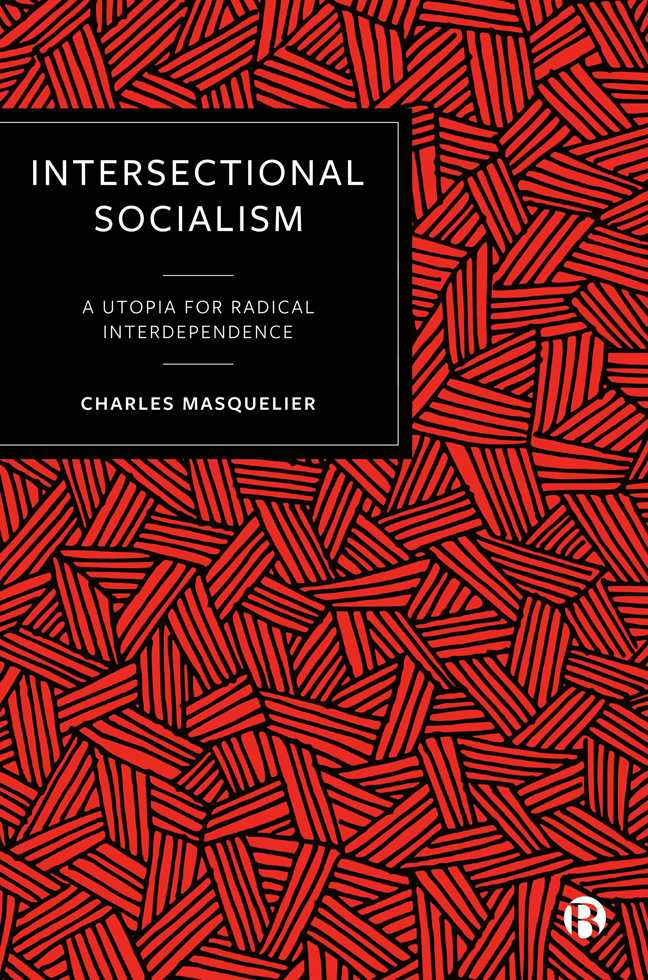Book contents
- Frontmatter
- Dedication
- Contents
- Acknowledgements
- 1 Introduction
- 2 Intersectionality, Pluriversality, and Libertarian Socialism
- 3 Pluriversal Intersectionality and Capitalist Domination
- 4 Pluriversal Emancipation
- 5 Work, Property, and Resource Allocation
- 6 On the ‘Production of Life’ and Labour of Care
- 7 Beyond the Modern Liberal-Capitalist State
- 8 Conclusion
- Notes
- References
- Index
7 - Beyond the Modern Liberal-Capitalist State
Published online by Cambridge University Press: 23 January 2024
- Frontmatter
- Dedication
- Contents
- Acknowledgements
- 1 Introduction
- 2 Intersectionality, Pluriversality, and Libertarian Socialism
- 3 Pluriversal Intersectionality and Capitalist Domination
- 4 Pluriversal Emancipation
- 5 Work, Property, and Resource Allocation
- 6 On the ‘Production of Life’ and Labour of Care
- 7 Beyond the Modern Liberal-Capitalist State
- 8 Conclusion
- Notes
- References
- Index
Summary
Introduction
Following persistent Indigenous peoples’ demands for recognition of their rights, the Canadian state introduced the Constitution Act of 1982, which recognized ‘existing aboriginal and treaty rights’ and laid the groundwork for the 1995 recognition of their ‘inherent right to self-government’ (Coulthard, 2014: 2). The move ostensibly marked a change in the relationship between the Canadian state and Indigenous peoples away from the distinctively colonial denial of their right to self-determination. On the face of it, the Canadian state appears willing to put an end to the dispossession of Indigenous peoples through the constitutional recognition of their rights. A state, it seems, can exhibit enough reflexivity to transform itself and challenge its own role in domination. The extent to which it has succeeded in doing so is nevertheless debatable (Coulthard, 2014).
In fact, a core question I wish to tackle in this chapter is whether the modern liberal-capitalist state can indeed transform itself in such a way as to secure pluriversal emancipation or is condemned to acting as an organ of domination. Capitalism, it was shown, must be understood as a ‘complex and multifaceted system of domination’ (Bohrer, 2018: 64). I wish to argue here that the same can be said about a more specific, albeit just as complex, institution at the centre of capitalist domination: the modern liberal-capitalist state. As a central coordinating body within the capitalist order, the state plays a key role in securing the conditions for the system's reproduction. The question regarding the fate of the state in an intersectional socialist utopia will be answered by deploying an intersectional lens. First, though, one must be in a position to understand what the state consists of, that is, its nature. I therefore propose to engage with an old but highly relevant debate between Ralph Miliband and Nikos Poulantzas on the nature of the capitalist state. This will serve as a basis for framing the discussion of the state through the lens of other resistance knowledge projects like feminism and anti-racism. It will be argued that instead of rethinking the state, this socio-political institution must be rejected as a model for institutionalizing pluriversal emancipation. This is due to its inextricability from structures of domination.
- Type
- Chapter
- Information
- Intersectional SocialismA Utopia for Radical Interdependence, pp. 153 - 175Publisher: Bristol University PressPrint publication year: 2023

